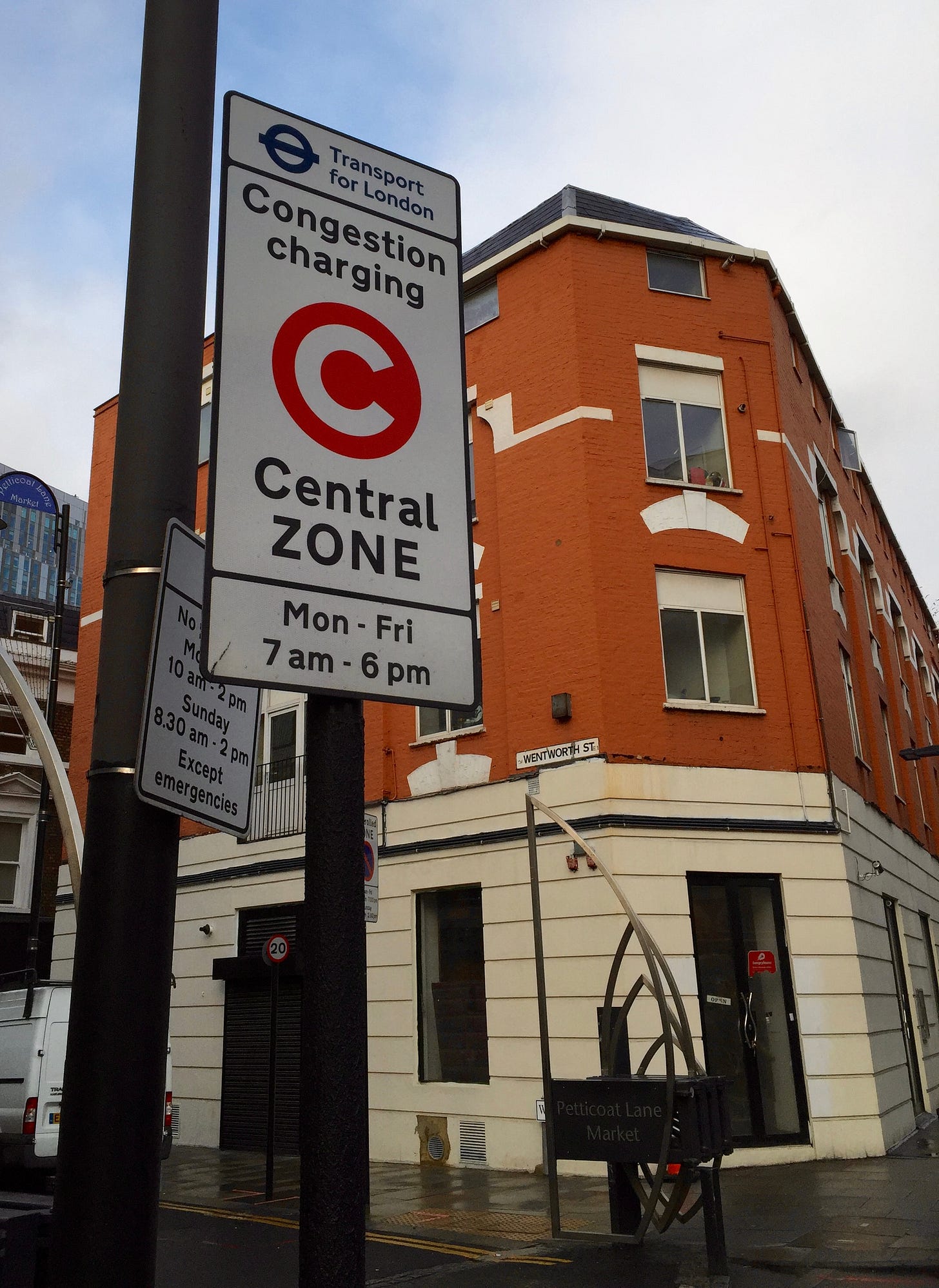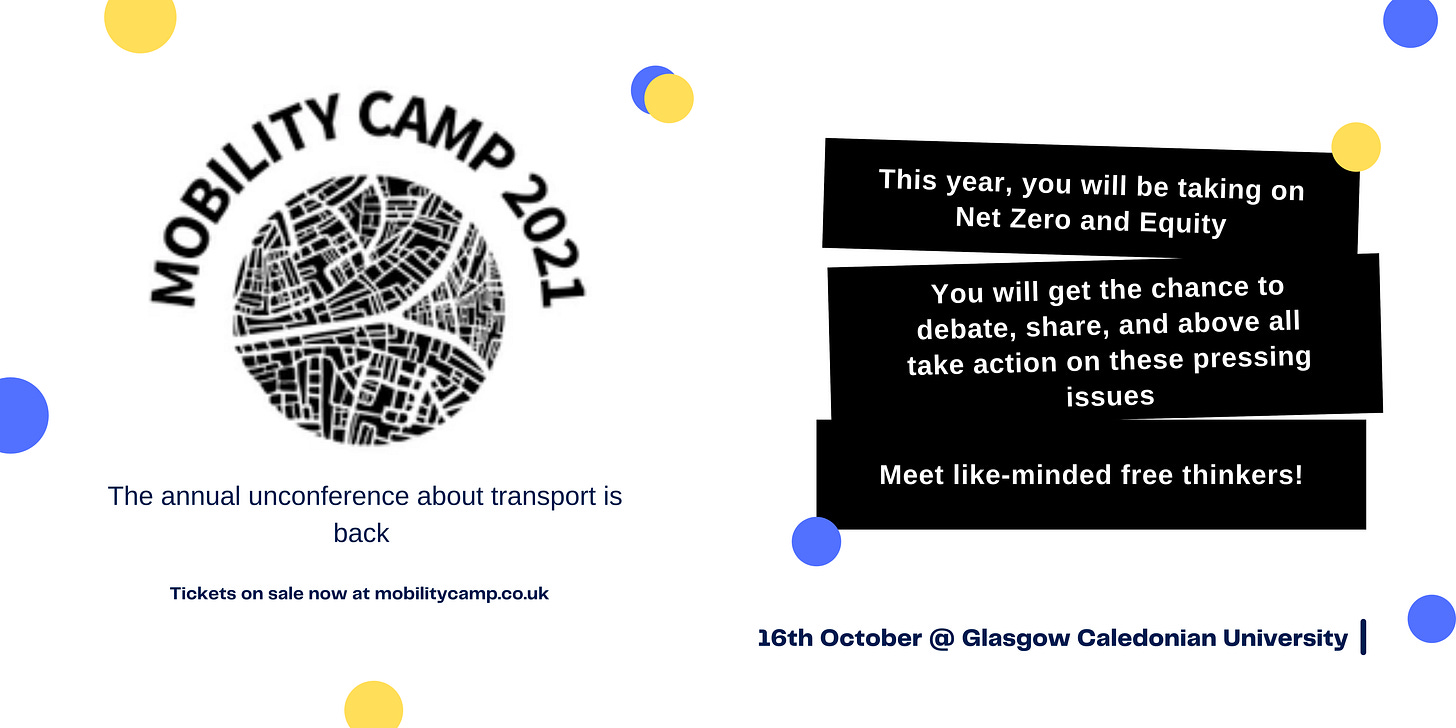Mobility Matters Daily #172 - Pathways to Net Zero, transport pricing, and banning petrol and diesel
Is no Facebook a bad thing?
Good day my good friend.
We did it. We survived. I don’t know about you, but in the time Facebook was down, people in my town poisoned our water supply, burned our crops, and sent a plague unto our houses. But thankfully we survived. Its just as well, otherwise I would not be able to share these links with you.
James
Mobility Matters is changing. The free newsletter will remain, but you will be able to get more through a paid subscription. Find out more about the plans here.
More active travel is essential. But the pathways to Net Zero are more complicated than just more bikes and walking
I have shared this before, but yesterday I came back to this post by the University of Oxford on how obsessing over electric vehicles is distracting us from what we should be doing - more bikes and walking. Particularly in the context of a report prepared for UK Government on technology pathways for decarbonisation.
The reality is that to achieve our targets we need to do…everything. People may baulk at investment in new technologies to reduce carbon emissions at the expense of behaviour change. But as well as reducing their use, we need to make technologies such as cars greener. The Committee on Climate Change says as much. We know behaviour change is hard, and while it must be done, we cannot rely on it alone.
Transport pricing experiment shows that transport pricing does what transport pricing does
A study by ETH Zurich performed an interesting experiment on 3700 in Switzerland. They tracked people’s transport habits, and for some they deducted the external costs of their trips from a travel budget as well as the direct cost. What they found was that, when given this cost, people sought to reduce the external costs of their trips, although their daily distance travelled remained the same. In the control group, there was no such effect.
This confirms studies from, well, everywhere that has done it really. Beijing, London, and Stockholm to name a few. I also note that the UK Government has yet to respond to the House of Commons Transport Committee’s report into the issue (contempt of Parliament, is that?). Its an issue we know about, and we have a decent idea of the effects of it.

Will the ban on fossil fuel vehicles damage the transport industry?
This is a question posed by Fleet Point. The short answer is yes, obviously it will, as any transition is costly and painful. The thing is, the cost of not doing it is even more painful, as those who have transitioned to electric or hydrogen out compete you. Not to mention the whole ‘world on fire’ thing being bad for business.
Random things
Some random things picked up from across the Internet:
Still no arrival time for €1bn-plus rail project (The Times)
Why is induced demand still ignored? (Greater Auckland)
Wales begins 50mph average speed enforcement in pollution hotspots (Highways UK)
Interesting things
The always-excellent Visual Capitalist does it again. From my data about you readers, this graphic should load pretty quickly for you.
If you do nothing else today, do this…
Read this article on doing a baseline when you have very little time before the program starts. It is very, very useful.




